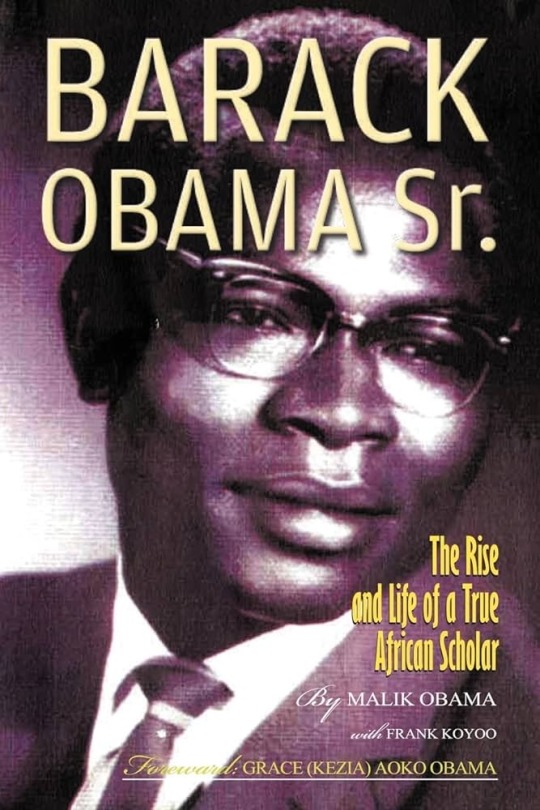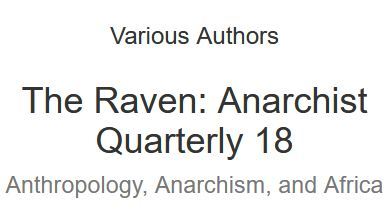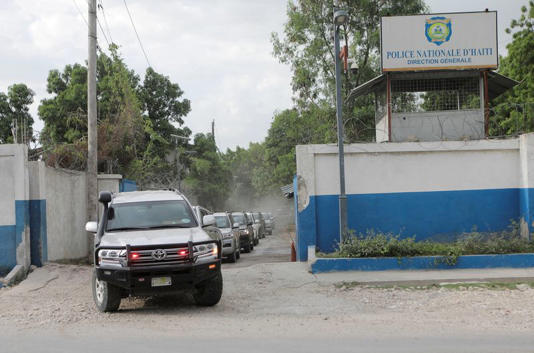#Car Finance in Kenya
Explore tagged Tumblr posts
Text
Easy Car Loans in Kenya

Car loans in Kenya are getting really popular because more people and families want to own their own cars. Since there's a higher demand for cars, banks and other money places have made special loans just for buying cars. These loans let you get your dream car without paying all the money at once. But, it's important to look into all the different loan options. Different banks can have different interest rates and rules for paying back the money. Also, think about your own money situation and pick a loan that fits your budget. Remember to include other costs like insurance, car fixes, and gas when you're figuring out if you can really afford the loan. In the end, car loans in Kenya make it easy for people to get a car and enjoy the freedom and convenience it brings.
#Car Finance in Kenya#Car Financing Companies in Kenya#Car Loans in Kenya#Car Loans in Nairobi#Vehicle Finance Kenya
0 notes
Text
Proton Cars in Kenya: Affordable Prices and Financing Options

Looking for Proton cars in Kenya? Proton offers a range of affordable and high-quality vehicles, including the popular Proton X70, available at competitive prices. If you’re wondering about the Proton X70 price in Kenya, it’s priced to suit various budgets, ensuring you can get a premium SUV at an affordable rate. Whether you're interested in a Proton X70 Kenya or other models, there are numerous Proton dealers and Mitsubishi dealers offering great deals.
Proton cars come with excellent warranty coverage, ensuring peace of mind for your investment. Many dealers also offer cars for sale with finance facilities, making it easier for you to drive away in your dream car without worrying about full upfront payment. Explore Proton car prices in Kenya and find the best deals on both new and used vehicles, now available with flexible payment options to suit your needs.
#Proton cars Kenya#Proton X70 Kenya#Proton X70 price in Kenya#Proton car price in Kenya#Mitsubishi dealers Kenya#Proton dealers Kenya#Proton car warranty coverage#Proton X70 spec and price#Cars for sale with finance Kenya#Vehicles for sale with finance facility#Affordable cars Kenya#New cars Kenya#Proton Kenya deals#Car financing options Kenya#Buy Proton cars Kenya
0 notes
Text
Affordable Luxury and Proton Vehicles: Discover Great Deals in Nairobi and Mombasa

Unlock incredible deals on cheap cars for sale in Nairobi and Mombasa with Proton Kenya. Whether you're looking to buy cheap luxury cars in Mombasa or find the best for sale cars in Nairobi, Proton Kenya offers a wide selection of vehicles to suit every budget and preference.
If you're specifically interested in Proton vehicles, check out the competitive Proton X70 price and discover why this model is a top choice for value-conscious buyers. Additionally, the Proton Saga is available for sale in Kenya, offering a reliable and stylish option for those seeking economical luxury.
Proton Kenya is your go-to source for exploring these exceptional deals. Whether you’re searching for an affordable luxury car or interested in the latest Proton models, we provide a variety of options to suit your needs. Don’t miss out on these fantastic offers—visit us today to find the best deals on cheap luxury cars and Proton vehicles in Kenya.
#proton x50 price in kenya#cheap luxury saga car#cars for sale with finance facility#book vehicles online in kenya nairobi
1 note
·
View note
Text
Luxury Cars for Sale with Finance Options | Proton Kenya

Explore a wide selection of vehicles available for sale with finance facilities, including affordable luxury cars, in Nairobi. With Proton Kenya, you can conveniently book your preferred vehicle online, whether you're seeking a stylish sedan or a spacious SUV. Experience the perfect blend of comfort, performance, and affordability with our range of vehicles tailored to your needs.
#vehicles for sale with finance facility#buy cars with finance facility#luxurious cars for sale in nyali kenya#new cheap cars in nairobi kenya
0 notes
Text

Embark on the journey to secure the best used car financing with Momentum Credit, your trusted financial partner. At Momentum Credit, we guide you through the process, ensuring transparency, flexibility, and financial expertise every step of the way. Discover the keys to success in securing optimal used car financing by assessing your financial situation, exploring our competitive offerings, and understanding the flexibility of our repayment plans. With a focus on your financial well-being, Momentum Credit empowers you to make informed decisions. Secure your dream car with the confidence that comes from partnering with Momentum Credit – where your financial goals become a reality."
0 notes
Text
Proton Cars in Kenya: Explore Proton Saga and X70 Prices

Discover a range of saloon cars in Kenya with competitive prices. Check out the Proton Saga Kenya price and explore the sophistication of the Proton X70. Elevate your driving experience with reliable and stylish Proton vehicles. Find your perfect match and enjoy quality and affordability on the roads of Kenya.
#vehicles for sale with finance facility#buy cars with finance facility#luxurious cars for sale in nyali kenya#new cheap cars in nairobi kenya
0 notes
Text

Barack Obama Sr. (June 18, 1936 - November 24, 1982) father of President Barach Hussein Obama, Jr. was born in Kenya to Onyango Obama and Habiba Akumu Nyanjango. He was raised in the Nyang’oma Kogelo village, Siaya District of the Nyanza Province. He converted from Islam to Anglicanism while attending a Christian missionary school and changed his name from Baraka to Barak. His parents separated when he was nine years old, and he was raised by his stepmother.
He married Kezia Aoko (1954) and the couple had two children. In 1959 he was selected for a special academic program and traveled to the US to enroll as the first African foreign student to study at the University of Hawaii at Manoa. He graduated in 1963 with a BA in Economics, he was inducted into the Phi Beta Kappa Honor Society. He married Stanley Ann Dunham (1961-64). The couple had one child.
He graduated from Harvard University, He married Ruth Beatrice Baker (1964-73). The couple had two sons.
He worked for an oil company as an economist in Kenya. He was promoted to the economist for the Kenyan Ministry of Transport, and senior economist in the Kenyan Ministry of Finance. He reunited with Kezia and had two children. He wrote an entry for the East Africa Journal titled “Problems Facing Our Socialism,” which set him at odds with Kenyan President Jomo Kenyatta and much of the nation’s political establishment. When Tom Mboya, Minister of Economic Planning and Development, was assassinated, he came under suspicion. He believed he was now a target of the government. He was fired and blacklisted and found it difficult to find and hold down a job.
He was hit by a car in 1970, an incident that left him in the hospital for almost a year. He traveled back to Hawaii. He visited Barack, Jr. giving him a basketball and taking him to a jazz concert.
He was involved in a second car accident that claimed both of his legs. He met Jael Otinyo, with who he had a son named George. The couple never married but just six months after the child’s birth, he died in a third car accident. #africanhistory365 #africanexcellence #phibetakappa
15 notes
·
View notes
Text


Kenya
On the plane to Nairobi, a grave but pleasant Makere scientist confirms what others have warned me: Nairobi is no longer a safe place in which to walk alone after dark. Ugandans are quiet people. After only four days in Kampala it was a culture shock to confront rude officials and hear fierce altercations at Nairobi airport. But the grim-visaged grubby taxi driver who beat off all competitors for the right to take me into town turned out to be a friend. He insisted on driving me to a hotel I’d heard of, in the sleazier part of the city centre. Good for him. The Oriental Palace, run by Indians, is new, clean, comfortable, and at current exchange rates (the Kenyan shilling drops daily) very cheap. Three ‘Pinkerton’ security guards patrol its entrance with truncheons to ward off the drunks, thieves and whores who prevail in this part of town. The restaurant serves good Indian food. The day ends well. Two young msunqu couples are in the bar, English but amiable. "We lost", says the lad from Southport when I cautiously ask about World Cup Rugby. Aussies beat Poms, 12-6. Kaunda, by the way, has fallen, too.
November 3: A day resting up and struggling with the phone. Not too useful here, either.
November 4: Nairobi, from my sixth-floor window, is still awash with jacaranda blossom. But new construction goes on manically. What for — huge office blocks in a country sliding into famine?
Out to Kenyatta University. The site was once a barracks from which Brits fought Mau Mau: the buildings still show that. No undergraduates here, or on any of the country’s five other campuses.. Moi had them all chased away after riots in July. Professor Nana Wilson-Tagoe, whom I’ve come to see, is a charming Ghanaian. She introduces me to a plump, fortyish, very cheerful colleague. Kenya’s leading playwright. It’s Frances Imbuga! Once my student, twenty years ago... Nana’s full of gossip, but whispers when anything political comes up, as if walls have ears. She recalls Scotland — how lovely Stirling campus is, how calm. And how much more prosperous and lively Scotland seemed on her last visit than when she first came in 1971. Even the cars seemed smarter...
The press in Kenya is amazing. I read my way through an entire issue of the Daily Nation, the most popular paper here. (It claims to reach 2.3 million in a population of 25 million.) It is oppositional, though no-way ‘left wing’ — much news and commentary, angled at businessmen, takes free-market capitalism for granted. Forbidden at the moment, though a legal technicality, to report the big news story — the months-long enquiry going on in Kisumu into the death, clearly murder, last year of Kenya’s Foreign Secretary Ouko — it retaliates by producing a scoop calculated to rattle the government, a story about vicious clashes over land between Nandi and Luo people in the west. Lesser stories inside the paper tell of shocking riots in two schools and the headmaster of a third found beaten up by the roadside. The business and finance columns speak frankly about foreign aid, now being diverted from Kenya to Uganda by donors disgusted by Moi’s habit of locking up and torturing opponents. The whole paper seems to be getting across one coded message: Kenya faces social breakdown and economic collapse and Zambian-style political change might be better for business. The Anglican Bishop of Kirinyaga gets the back page headline. ‘Emulating Kaunda, Says Gitani.’ Beneath this another Bishop, Catholic, ‘Tells Errant Leaders to Resign’ — that is, those involved in the country’s countless financial scandals.
November 5: The University of Nairobi campus is depressingly unchanged, except that it’s bereft of students and seems even dustier. Only the glossy Kenyatta Memorial Library, named after the dead tyrant, is new: impressive design, but, for literature and history at least, virtually no books bought in since the early 1970s.
Another ex-student, Henry Indangasi, is now head of the Literature Department. His gossip is shrewd, and all the more devastating in its implications because of its restraint. I learn of the sad corruption of certain men whom I taught and liked — one has four or possibly five wives and will do anything for money, another has nearly destroyed his once-brilliant prospects by blatant, punished, greedy dishonesty. My best student of poetry, Arthur Luvai, has left Nairobi — bad for me, since I can’t see him, but good for him, since he’s got a chair at the new campus, Maseno, in his home district. Indangasi reacted against the Marxism which became an orthodoxy towards the end of the Great Days here by remaining one of the academic world’s few unreconstructed Leavisites. He’s not keen on multi-party democracy either. "I am a Kenyan. But I am also a Luhya. In elections, there would be a Luhya party. I would have to support that party."
These glossy new buildings... Luvai’s anthology of recent Kenyan verse, Boundless Voices, which I read over dinner, has a good poem by him about the Safari Club monster now facing the university — skyscraping tower versus tree-scraping ‘ivory tower’ — from which a stone fell during construction straight onto the head of Stella Muka, a brilliant student actress. I suppose the new buildings mostly replace, like this one, facilities inherited from the colonialists. If they rob the centre of its mid-century sub-Raj character, one can’t really protest on aesthetic grounds. But in human terms ... kids scrabble for refuse to eat, unemployed school-leavers rob, beneath arrogant plate-glass signifying money.
The bookshops are depressing in a different way ...
Twenty years ago, in the Great Days, the Great Men, somewhat irregular university employees who were also internationally famous as the New Writers of East Africa freed by Uhuru, were denouncing cultural imperialism. The Kenyan novelist Ngugi, Okot from Uganda and Taban from Sudan, who both wrote poetry and polemics, and the exiled Malawian poet Rubadiri, found journalists, students and young writers ready to join the chorus. Amongst them, a few expatriate msungus like myself, rejoiced as ‘English Literature’ gave way in the syllabus to plain ‘Literature’, so I could and did teach Neruda and Li Po and R.K. Narayan as well as new African writing and Russian classics. (‘Great Days’ for me, indeed: intellectually, the best of my life.)
But the bookshops in Nairobi displayed upfront works by white writers, amongst them those of the settlers, Blixen and Huxley, along with glossy books about wild animals, wild birds and wild, ‘picturesque’ natives.
Twenty years later, the numerous bookshops in Nairobi display, upfront, precisely the same types of goods, except that the ‘rediscovered’ settler writer Beryl Markham and James Fox’s (excellent) White Mischief have now joined the paleface tribe. At the backs of shops, often in textbook sections, one finds much the same selection of creative writing by Africans as on my last brief visit here in 1978. Achebe and other non-Kenyan stars. Plenty of work by Ngugi, although he’s been in political exile for ten years, after nearly a year in detention without trial.
Of the few new novels by Kenyans, only one is by a writer who wasn’t well known to me in 1978. Apart from Luvai’s slim anthology, no poetry it seems, has been published in book form since 1982.
The University Book Shop and the schools-oriented Textbook Centre are like museums. Here one finds stacks of copies of titles poured forth in the Great Days by local publishing houses now extinct (many of these, it must be confessed, are worse than mediocre). In the University shop I buy several copies of Busara Volume 1 Number 1, a magazine launched in 1968, to which, along with Taban, I contributed. There are no current literary magazines at all in the Great Days there were always two or three.
I began to conclude that over the past decade or more, the energy which once sought expression in creative writing has gone into journalism: The Nation is splendid, The Standard also displays clever footwork against the Government. Though The Times is jointly owned by the ruling KANU party and Robert Maxwell and its editor Philip Ochieng, the most brilliant press gadfly of the Great Days, was recently sacked for getting out of step, at least, like the Standard, it prints verbatim the evidence coming out at the Ouko inquiry in Kisumu. It is plain as the snow on Mount Kenya that the minister was murdered by people very close to Moi. The doughty Scotland Yard man, Troon, who was obviously brought out to investigate the case in the hope that as an outsider he could be bamboozled into producing a whitewash, is telling the court how he saw through attempts to fool him ... He is becoming an African folk hero.
I am reminded of a conversation with the drunk and pretentious chairman of the Ugandan Writers Union, back in Kampala. He wittered about his soulful verse in the way really bad ‘poets’ do. I advised him to stick to his métier, which is journalism. A good pressman is worth fifty bad poets.
November 6: I meet Marjorie Oludhe Macgoye at the United Kenya Club, once the gracious resort of the white official class. It’s still smart, but with traffic now so plentiful in this once-quiet quarter, it’s hard for two people with low voices to talk on the terrace ...
Marjorie is the anthologist’s nightmare. Born in England, she married a Luo, took his name. Her poetry at its best is extremely impressive. Editors seize on it to represent Kenya then discover that they’ve foregrounded a msungu. Now in her early sixties, she hints in her build at double-chinned Queen Victoria. Her accent, after nearly four decades of living with Africans in Africa, is surely unique. Since she comes from Southampton, there may be a John Arlott substratum. On the surface, it’s quite unlike the way Africans speak English, yet transactions in Luo and Swahili must condition it. She lost her husband, a medical scientist, quite recently, but, much as she despises the corruption and bad manners of the Moi regime, she shows no hankering at all to get back to UK. Nor, though, does she pretend to be anything but a white former missionary.
She knew the poet Okot well, was one of the last people to see him before drink killed him a decade ago — "He rose to shake my hand —Okot, shaking the hand of a woman". Her very moving elegy for him acknowledges his male chauvinism:
So you are stilled — the long arm, sideways smile, the arch, back-handed question, the arrogant unhesitating machismo, all-embracing, the eyes in the back of your head, the story-telling...
She thinks it was a trip he had with Rubadiri, ‘lecturing’ in Nigeria, which set him on the course which killed him. (Indangasi yesterday recalled Okot’s latter days in the Nairobi Staff Club, drinking all day on tick — "This place killed him".) But Rubadiri, now washed up on yet another shore of exile in Botswana is, she insists, on the wagon. I’m glad. David, ten years older than me, one of the first Black Africans to publish poetry in English, was my fellow student at Cambridge. His charismatic call, "Come South, young man", was probably what lured me to Africa back in 1968.
Marjorie knows everyone. She used to run the best bookshop in Nairobi, and provided the city, in the late seventies, with a centre for poetry. She keeps up with what little now goes on, gives me a list of local poets (too many for me to see). It’s a sad tale: remaining copies of her own collection of poetry pulped, her brilliant protégé Khaminwa now silent, in exile, in Zimbabwe, feeble local writer’s workshops, the Writers Association bedevilled by politics and insane infighting, unable to use money gifted to it by the enlightened Swedish Development Agency so that it could start a magazine ... The newspapers still publish poems occasionally. So does New Age magazine, emanating from a Hindu organisation. She herself is the only East African poet in Adewale Maja-Pearce’s recent Heinemann Book of African Verse. Most embarrassing ...
I leave with regret — a taxi to Heinemann Kenya. Smart offices in fashionable Westlands. But its Director, Henry Chakava (double first in Literature and Philosophy, as brilliant a student as I’ve ever had), is in a strange state. He moves oddly, as if adjusting to some invisible cripplement, swaying as he walks slowly. He woke up this morning, he tells me when I enquire, with a crampy pain in his left foot ... He’s a brave man. He survived a vicious attack by robbers with pangas in 1980 and a bad patch when he kept receiving death threats: he published the oppositional novelist Ngugi.
That writer is on his mind today. He must phone Ngugi, who’s in New England (he teaches at Yale) but has just gone ex-directory. I promise to give him the last private and confidential phone number I have for Ngugi in London, his normal base in exile. That’s probably out of date, too. (Why doesn’t Ngugi come back to Kenya? Indangasi asked me. "His books are freely on sale — they’re used in schools." "Because", I replied, "I think he thinks, as I think, that there would soon be a strange and fatal car accident on the Limuru Road".
Henry’s intelligence and humour are still there, but he seems slightly dazed. No wonder. Heinemann International have their own problems. They’ve just told him that Heinemann Kenya’s finished, cut loose. He can keep the company, find a new name. Should it include ‘Kenyan’, he wonders aloud? He thinks no, he says, smiling — ‘African’. Something with ‘African’ in it. Poetry? He can’t afford to publish it. Luvai is an old friend. His anthology, alas, just isn’t selling. Schools still go for Poems from East Africa ed. Cook and Rubadiri —twenty years old, entrenched in the stock cupboards and (I suggest) the routines of lazy teachers. Chakava’s returned the latest collection from Angira, Kenya’s best-known poet, with the comment that it was too abstruse to break into the all-important schools market.
Henry finally hands me over to his young colleague Ole Sunkuli, who specialises in books for secondary schools — the crucial market for local literature, if one exists. I do a deal with this handsome, highly intelligent young man (a Maasai worlds away from the ‘picturesque’ warriors seen on every rack of postcards here). He can talk to me for his regular interview feature in the Sunday Nation if I can discuss the Sales situation with him. And I want this to be at the Norfolk Hotel.
The Norfolk (see White Mischief) is a legendary place, one of the first watering holes for settlers. From the verandah Lord Delamere shot elephants. Down the verandah steps, outraged whites once kicked the nationalist leader Mboya. Or so it is said. Anyway, the university sprang up adjacent in days when beer prices were controlled. Academics and students invaded the settler sanctum. On the terrace, Ngugi held court, Okot jested and sang. More routinely, here I’d be found just before sunset going over some new poems with a student writer or arguing with a historian colleague (for these were the days when Kenyan history was being salvaged from the contempt of white historians like Hugh Trevor Roper). Taban might be of the company or might not. If we weren’t on good terms (and largely we weren’t, though we’re now, in mellow old age, fully reconciled) he would be talking Black Power to all and sundry at another table. Philip Ochieng might be there, with the lizard-dart of his tongue, or the brilliant Angira, poet and student of commerce, impossibly honest, worried about the nation’s future. One little episode sums up the Great Days for me. Voice of Kenya broadcasting studios, were just down the road. On his way there, the then-Minister Mungai, dressed in a fashionable but informal jacket, is hailed from the Norfolk terrace. He reaches over the balustrade to shake hands warmly with Ngugi Changed times ...
I am touched to learn that when Taban passed through Nairobi a few months ago, he also insisted that Ole Sunkuli quiz him at the Norfolk. Maybe we’re Dostoevskian doubles, after all.
Unfortunately, beer prices are now decontrolled. The scholars and writers have gone. Msungu tourists and yuppie locals prevail.
I tell Ole Sunkuli how exciting it was, how many people were part of the Great Days, not just Ngugi, Okot, Taban and Rubadiri, how enthusiastic the students were, how promising the young poets. Now long silent. Ole Sunkuli confirms my own theory. The heroes of the Great Days, paradoxically, by their swift success, throttled future literary development. The school syllabus was Africanised. The multinationals pounced. Books were set which became entrenched in the syllabus. With that market all but closed, local publishing firms set up in hope of reaching it struggled maimed towards quick or lingering death. Now even ex-Heinemann Kenya can barely afford to publish new fiction, let alone poetry ... Longmans, their multi-national competitor, ditto.
I am glad to be remembered as mwalimu, teacher, from the Great Days. But the field I worked in was soon overcropped, yields little now. Things might be different if Okot were still alive. Ngugi’s departure for exile ten years ago clearly helped stunt local creativity. The market, anyway, doesn’t want poems.
I cross the deserted campus to the French Cultural Centre, a plush place tucked behind the plate glass skyscrapers. Imbuga’s play Aminata is to be shown in the theatre here. Waiting a long time for it to start (African time surpasses even Hebridean time in its unpredictable flexibility) I am bumped into by John Ruganda, a brilliant, frightening playwright long self-exiled from his native Uganda. I last saw him when I last saw Okot — they were drinking double gins together on the Norfolk terrace at 11 am on a Sunday morning. Ruganda’s survived though. He’s mellowed. His- face still suggests a pickled egg with a sneer, but he’s actually genial.
The play, a feminist fable, is fun, though not really suited to proscenium arch presentation. With its humorous vignettes, its blatant propagandist passages, the ceremonial dancing which concludes it, Aminata surely needs to be seen in a community hall, or even in the open. Imbuga himself is pleased with the production though. Afterwards, drinking with him and Ruganda I feel a sense of total relaxation such as only Africa has ever given me. Part of this effect tonight is certainly the fact that educated Africans retain a villager’s sense of the strangeness of modernised existence. Isn’t it odd, for instance, that the government owns everything below three feet underground, even the roots of trees? ... Ten minutes of laughter ensue from this perception and the speculations which it breeds.
November 7: Robert Maxwell is lost off his yacht. The Kenyan Times will duly provide a large and sycophantic obituary.
My lucky day. The phone works for me! I contact Angira at his office. Ringing Chakava with Ngugi’s number, I learn that Maillu’s in the office with him. I speak to Maillu.
A unique writer. In the mid-seventies he proved that there was a popular market for books in English by flooding the streets of Nairobi (literally) with cheap paperbacks of his own works, voicing ‘Common Man’ sentiments, sold from the pavements like newspapers. These were denounced as rubbish by critics and as pornography by moralists
When his publishing venture went under at the end of the decade, he turned his hand to writing for the multinationals, anything that would sell, children’s stories, thrillers, romances, a book on African polygamy which (as he puts it) ‘does well abroad’. Now he’s back into self-publishing not with a whimper but with a megabomb — Broken Drum, the longest African novel ever published at 1,100 pages, the continent’s riposte to War and Peace, covering two hundred years of Kenyan history. He is aiming at international paperback sales, like Wilbur Smith — a bushbuster. Is he shy, or just self-contained? He munches a modest hamburger while I eat steak: he clearly likes the fact that one or two foreign academics have taken a critical interest in his work, but has no literary gossip, no interest in fine writers and their ways. When we part, I am wishing him luck sincerely. While ‘serious’ writers brood and wrangle, Maillu just goes on trying to work out how to earn an adequate income as an African author. As in 1971, what Kenya needs is a broadly based local publishing industry where books like Maillu’s sell well enough to make it possible to print Angira.
Angira, true to his old form, arrives at the Oriental Palace at eight exactly, as promised. Jared, it’s been too long...
Though he’d worked for the government since he left university (he currently trains people for the Agricultural Finance Corporation) he remains fierce about corruption and abused power. This tall, distinguished-looking civil servant, now 44, retains all his student convictions about truth, justice and poetry. He suspects that Chakava turned his poems down for political reasons. I insist that’s unfair. Anyway, Angira goes on writing, what he thinks, for himself.
November 8: Back to the University. See Indangasi for lunch. Indangasi is sceptical about the Great Days. We talk about his colleague Owuor Anyumba, East Africa’s major folklorist, now, sadly, very ill in hospital. The true hero, Indangasi thinks, from the Great Days. But he has published very little. His office is full of unexploited tapes from decades of field trips. I implore Indangasi to get money from somewhere, anywhere, at once, to ensure that they’re copied. Otherwise, a careless cigarette could destroy the one-man equivalent of the School of Scottish Studies archive.
On my last evening in Kenya I have drinks and snacks with Imbuga and Ruganda, who were curious to see the Oriental Palace. They like it, reminisce about days when members of the student body boozed and whored in this area of town. I’ve bought copies of their plays. They sign them with pleasure. Perhaps this side-street hotel will replace the Norfolk as a venue for literary gossip?
Probably not. But Mwalimu is happy, if tired. Moi’s on the skids. Ngugi might risk it back soon.
#Kenya#Africa#anthropology#England#English politics#epigenetics#field trip#genetics#Kenyan politics#Malawi#Malawian politics#Uganda#Ugandan politics#Zimbabwe#Zimbabwean politics#music#Pëtr Kropotkin#poetry#Ruth Finnegan#The Raven#travel#africa#african politics#anarchism#anarchy#anarchist society#geopolitics#resistance#autonomy#revolution
2 notes
·
View notes
Text
The choices facing Kenya's President William Ruto are now far from easy.
Elected in 2022 pledging to cut corruption, shore up the country's faltering economy and help the poor, the embattled Mr Ruto now faces an unprecedented rebellion against his finance bill - legislation he says he is an essential part of his plan to build the nation.
It might be easier to know which way to turn if the opposition Mr Ruto faced was confined within parliament.
An astute political player, deputy president for almost a decade before being elected to the top spot, Mr Ruto has years of experience wrangling politics to get things done.
Now though, the forces massed against him are something truly beyond his control.
Live: At least five shot dead in Kenya at protests against tax hikes - reports
Kenya's tax proposals that have triggered protests
Why Kenya's president wants people to love the taxman
A mass movement which grew organically out of discontent expressed on social media has grown into a powerful rebellion which has filled the streets of cities and towns across the country.
In the capital, the Nairobi governor's office, city hall and the country's parliament have this afternoon all been set ablaze.
The protesters had started the day threatening a "total shutdown".
And at the end of a day of chaos and panic across the country, often set against the sound of teargas and at times live fire from police, there is no doubt their fury has been heard.
For Mr Ruto, the choice now seems to be about whether to yield to the demonstrators and abandon his budget, or to dig in and push it through, risking further turmoil and bloodshed on the streets.
He has argued the raft of new taxes are essential to control Kenya's debt - a huge sum of more than $80bn (£63bn), which costs the country more than half of its annual tax revenues to service.
Kenya secured a restructuring of its international debt commitments earlier this year – something which immediately pushed a surge in the value of its currency, the shilling.
Increasingly seen as one of Africa’s leading statesmen, recently returned from a state visit to the White House, Mr Ruto understands the importance to his nation’s economy of avoiding a default on its debt payments.
For those in his government the calculation was that controlling the state finances by increasing the tax burden was preferable to cutting public services.
The finance bill, which was due to become law on Monday, originally brought in dozens of new or increased taxes on everything from car ownership and financial transactions to sanitary pads.
Several of the most contentious taxes have already been dropped following consultation with the public.
But the controversy over the budget follows other revenue-raising measures introduced by Mr Ruto, including increased taxes for healthcare and low-cost housing.
And for those on the street, there's a third solution available to the government beyond cutting services or raising taxes.
Many blame the country’s financial woes on corruption, with taxpayers wary of paying more amidst a lack of trust over the transparency of the state.
For Mr Ruto it is perhaps the shadows of this past that make his current position so difficult.
He rose from the deputy presidency to the presidency in the 2022 elections, and with a focus on green energy and tech he has certainly got new ideas about where he wants to take Kenya.
But for many on the streets, Mr Ruto’s record as a senior figure in government over a period marred by corruption means it’s hard to trust him with their taxes.
Tuesday’s events in Nairobi leave Mr Ruto seemingly pinned now into a tight corner.
Facing condemnation for what many Kenyans see as a heavy-handed response to protests in the street, he must choose now whether to hold firm to his budget or to find a different route to securing financial security for Kenya.
In the meantime, those who came out to have their voices heard in Nairobi and across the country show no sign of giving up.
When Mr Ruto addressed the nation in his inauguration speech, he spoke directly to the country’s politically-active youth.
“My political journey,” he told them, “Similarly began as a young campaign volunteer, fresh out of university.
“Your experience and lessons learnt should form the basis for your leadership journey.”
Now it is a confrontation with a youth-led movement that poses what many consider to the be biggest challenge to authority in Kenya since the country’s independence in 1963.
The next days for Mr Ruto will be crucial, as he faces tough choices for his government and the country.
2 notes
·
View notes
Text
Un collectif d’organisations et d’associations dont les Amis de la Terre, Greenpeace, Extinction Rébellion affichent leur soutien aux manifestants et annoncent les rejoindre.
Nous nous adressons à tous les agriculteurs et agricultrices ayant manifesté leur colère ces derniers jours, mais aussi à toutes celles et ceux qui hésiteraient encore à les rejoindre. Nous, organisations écologistes, paysannes et militantes pour un autre modèle agricole depuis des décennies partageons cette colère, et refusons le discours dominant qui voudrait faire de nous vos ennemis.
Nous sommes en colère parce que nous savons que la destruction des conditions de vie des paysan.ne.s comme la destruction des écosystèmes profitent aux mêmes personnes, et que ce ne sont ni vous ni nous.
Depuis les tout débuts des mouvements écologistes, nous nous sommes toujours mobilisés avec détermination sur la question du modèle agricole et des conditions de travail et de vie des agriculteurs. Parce que nous savons l’importance considérable de l’agriculture sur l’environnement : ainsi la qualité de la terre, de l’air, de l’eau, de ce que nous mangeons, et bien sûr le climat, dépendent de ce que nous cultivons et élevons et de la manière dont nous le faisons.
Nous avons lutté contre les traités de libre-échange, pour la souveraineté alimentaire et pour que chaque pays – et chaque paysan.ne – puisse vivre de son agriculture et la faire vivre plutôt que de la soumettre à la concurrence internationale. Nous avons manifesté main dans la main avec les agriculteurs contre la grande braderie du monde paysan à la finance, contre le Tafta (avec les Etats-Unis), le Ceta (avec le Canada), le Mercosur (avec l’Amérique latine), maintenant les traités de libre-échange avec la Nouvelle-Zélande, le Chili et le Kenya soutenus par Emmanuel Macron.
Le principe d’une sécurité sociale de l’alimentation
Nous avons en tant que consommateurs et militant.e.s soutenu l’agriculture paysanne, créé et promu les Amaps, les circuits courts, l’agriculture bio, nous avons mis la main à la pâte jusqu’à mettre de l’épargne au service de nouvelles installations. Nous appelons depuis longtemps à ce qu’il y ait au moins un million de paysan.ne.s en France, et nous savons l’urgence qu’il y a à trouver des repreneurs, car dans moins de dix ans maintenant la moitié des agriculteurs du pays partira à la retraite. Et même si c’est loin d’être assez, ce sont déjà des milliers de militant.e.s écologistes qui ont entrepris des reconversions en agriculture pour s’y mettre concrètement.
C’est encore pour cela que nous sommes nombreuses et nombreux à défendre désormais le principe d’une sécurité sociale de l’alimentation, un système de solidarité entre consommateurs et producteurs qui permette à ces derniers de vivre décemment de leur travail et de reprendre la main sur notre alimentation.
Dans le domaine de l’agriculture comme dans d’autres, nous discernons bien aussi toute l’ambiguïté des normes. Certaines peuvent bel et bien protéger la santé des travailleurs, la fertilité des terres, les ressources en eau… Mais sous des prétextes vertueux, elles sont parfois aussi conçues pour impliquer des contraintes techniques, pratiques et une aseptisation du métier telles qu’elles vont dans le sens de la disparition des petites fermes au profit de ceux qui peuvent s’industrialiser et s’endetter plus encore. Il n’y a pas lieu de s’attaquer sans discrimination aux normes environnementales mais de les financer de manière à maintenir les revenus et d’en rendre l’application compatible avec la pratique paysanne.
Alors nous sommes nombreux à avoir soutenu et proposé sans succès une autre PAC, qui aide réellement aux reconversions et pour ne pas vous abandonner face à des normes environnementales imposées sans aucune contrepartie derrière pour les appliquer concrètement et de manière juste.
Même et surtout quand nous nous battons contre des projets agricoles, contre des mégabassines, ou des élevages industriels aux proportions absurdes : nous le faisons systématiquement avec des agriculteurs, et pour le monde paysan. Parce qu’il est injuste et hypocrite que quelques agriculteurs s’accaparent l’eau au détriment de ceux qui cherchent à produire autrement. Parce que les fermes-usines contre lesquelles nous nous battons détruisent de l’emploi paysan et mettent une pression déloyale sur les petits éleveurs qui sont contraints de s’aligner ou de mettre la clé sous la porte. Et tout ça au bénéfice de grands groupes qui les poussent à des élevages toujours plus grands pour leur racheter leurs produits à des prix dérisoires – c’est par exemple la stratégie du groupe Duc révélée par une enquête.
L’échec et le drame d’un modèle productiviste
Stopper ces projets, c’est défendre un modèle agricole qui protège le vivant mais surtout qui permet au reste du monde paysan de vivre dignement d’un travail de qualité.
Car, qui est à l’origine de la chute du nombre de paysan.ne.s à moins de 500 000 en France ? A l’origine des suicides d’agriculteurs chaque jour, des montagnes de dettes ? A l’origine des obligations de rendements toujours plus importantes, de la concentration toujours plus forte des terres dans les mains de quelques-uns, des prix toujours plus bas de ce que vous produisez ? Les prix agricoles ont baissé de 10 % en moyenne rien que l’année écoulée, tandis que l’inflation bondissait et les bénéfices des grands groupes agro-industriels et de la grande distribution également.
Cet échec et ce drame, ce sont ceux d’un modèle productiviste, poussé par la grande distribution et des gouvernements successifs depuis des décennies, contre lesquels nous alertons depuis tout ce temps.
Le modèle agricole que nous défendons se bat précisément contre les causes de ces drames. Mais aussi contre l’autoritarisme qui s’offre comme une solution, alors qu’en excluant plus qu’en rassemblant, jamais l’extrême droite n’a été du côté des travailleurs.
Depuis toujours, nous sommes les alliés des paysans. Et contrairement à ce que racontent la propagande du gouvernement ou les discours autoritaires qui attisent la haine entre nous pour mieux s’engraisser sur nos vies : nous continuerons à être vos alliés, parce que c’est une question de survie.
Alors c’est en tant qu’alliés que nous appelons à vous rejoindre dans vos actions les jours qui viennent pour porter ce message, et pour défendre le monde paysan.
Nous serons là avec différents points fixes pour discuter avec tous les agriculteurs qui le veulent, et ensemble rappeler que les véritables responsables de la crise que vit la profession ne sont ni les consommateurs ni les écolos – mais bien la lâcheté des gouvernements successifs, la grande distribution et l’agro-business qui s’engraissent pendant que tant d’entre vous se tuent à la tâche.
Nous refusons de laisser des industriels possédant des milliers d’hectares, le gouvernement ou encore les éditorialistes de CNews bien au chaud dans leurs bureaux parisiens nous traiter comme la cause de la crise que subit le monde paysan depuis si longtemps.
Nous préférons construire ensemble un modèle qui profite aux agriculteurs, aux consommateurs et à la vie, comme il aurait toujours dû l’être. Et nous serons ensemble dans la rue pour en discuter et manifester, car oui, il est bien possible d’être militant à la fois pour l’environnement et pour l’agriculture de demain.
Premiers signataires : Alix Brun pour les Youth for Climate, Jean-François Deleume, porte-parole Alerte des médecins sur les pesticides, Cyril Dion, réalisateur et écrivain, Simon Duteil et Murielle Guilbert, co-porte-paroles de l’Union syndicale Solidaires, Khaled Gaiji, président des Amis de la Terre, Antoine Gatet, président de France Nature Environnement, Hanzo pour Extinction Rebellion, Axel Lopez pour la coalition Résistance aux fermes-usines, Gilbert Mitterrand, président de la Fondation Danielle-Mitterrand, Lotta Nouki, porte-parole des Soulèvements de la Terre, Sandy Olivar Calvo, chargée de campagne Agriculture et Alimentation chez Greenpeace France, Alessandro Pignocchi, auteur de bandes dessinées, Priscille de Poncins, secrétaire de Chrétiens unis pour la Terre, Jérémie Suissa, délégué général de Notre affaire à tous, Emma Tosini, porte-parole de Alternatiba, Victor Vauquois, co-coordinateur de Terres de luttes…
3 notes
·
View notes
Text
Kenya's Haiti mission in limbo as urgency grows

A convoy of cars carrying members of a Kenyan delegation leave the premises of Haitian National Police (PNH) after meeting with the Chief of the Haitian National Police Frantz Elbe, in Port-au-Prince, Haiti, August 21, 2023
NAIROBI (Reuters) - Kenya has said its police officers will soon be in Haiti to confront rampaging gangs controlling the capital, but worsening insecurity and uncertainty about financing are casting doubt on the mission's prospects.
Kenya's government, which first pledged to lead an international security mission last July, says the coast is now clear to deploy after it signed an agreement with Haiti's government on March 1 meant to address concerns raised by a domestic judge who deemed the existing plan unlawful.
The United States and other powers are pushing for a swift deployment of Kenyan officers, seen as a prerequisite to allowing a half-dozen other African and Caribbean countries to also send security forces.
Prime Minister Ariel Henry has been unable to return to Haiti because of escalating violence since he signed the deal in Kenya. He announced overnight he would resign once a transition council and temporary replacement have been appointed.
Kenya's army has previously been sent to countries including Somalia, but its police officers have never been deployed in such large numbers and, for Nairobi, thorny issues remain to be worked out.
"The deteriorating security situation is likely to force a rethink in Nairobi," said Murithi Mutiga, the program director for Africa at the International Crisis Group think-tank.
"The state seems to be crumbling from within and the security situation is much worse than when Kenya offered to lead the mission."
Kenya's presidency and government did not respond to requests for comment.
One major challenge, according to diplomats with knowledge of the matter, is financing. The United States is providing the bulk of the funds for the mission, which was authorised by the U.N. Security Council in October.
The United States has pledged $300 million. However, a U.N. spokesperson said that as of Monday, less than $11 million had been deposited into the U.N.'s dedicated trust fund.
A senior U.S. State Department official said President Joe Biden's administration was working with Congress to get the money transferred.
Kenya has asked to be paid the costs of the deployment upfront, but U.N. rules require that funds it administers be used only to reimburse costs already incurred, according to a diplomat based in Nairobi and U.N. officials.
Kenya would therefore need to find a country willing to pay it directly, said the diplomat and U.N. officials who requested anonymity because of the sensitivity of the discussions.
A senior U.S. official said $100 million in Defense Department funding to the mission announced on Monday would be used for logistics and equipment, and would not pass through the U.N. trust fund.
It was not clear whether that money could cover some or all of the Kenyan government's requests. Kenya has pledged 1,000 officers to a mission that experts expect to have up to 5,000 personnel.
PRE-DEPLOYMENT STAGE
Addressing reporters on Monday, Interior Minister Kithure Kindiki said Kenya was in the pre-deployment stage.
"There was a small court matter and that has been resolved," he said.
A High Court judge ruled in January that the government's plan was unlawful because there was no "reciprocal agreement" with the host country.
Although the government believes the March 1 agreement addressed the judge's misgivings, the opposition politician who spearheaded the lawsuit has vowed to launch a new challenge. He argues that the unelected Henry did not have the legal authority to enter into such an arrangement.
Meanwhile, the surging violence over the past week in Port-au-Prince, where gangs besieged the international airport and released thousands of prisoners, has deepened concerns in Kenya about the wisdom of the mission.
Opposition politicians, already critical of the mission as too dangerous and not in Kenya's national interests, have stepped up their criticism.
Opiyo Wandayi, the minority leader in the National Assembly, warned last week of immense losses. Makau Mutua, a prominent law professor, said Kenyan officers would be "sitting ducks".
Enock Alumasi Makanga, a former police officer and the national chairman of the Protective and Safety Association of Kenya, told Reuters that Kenyan police lacked the training and equipment to carry out such a mission.
"The level of criminality in Haiti is beyond what our guys can do," he told Reuters.
Kenyan officials have said that the highly-trained paramilitary officers were well prepared for the challenges.
President Ruto has said the mission is a "bigger calling to humanity" motivated by solidarity with a brother nation. Haiti requested an international force in October 2022, but foreign governments were reluctant to participate.
3 notes
·
View notes
Text
Get Your Dream Car with Easy Car Loans in Kenya

Car loans in Kenya have become increasingly popular as more individuals and families aspire to own their own vehicles. With the rising demand for cars, financial institutions have developed various loan products tailored specifically for purchasing cars. These loans provide borrowers with the opportunity to acquire their dream vehicles without having to bear the burden of paying the full cost upfront. However, it is important for borrowers to thoroughly research and compare the different loan options available, as interest rates and repayment terms can vary significantly between lenders. Additionally, borrowers should consider their financial capabilities and choose a loan that suits their budget and repayment ability. It is also advisable to factor in additional expenses such as insurance, maintenance, and fuel costs when determining the overall affordability of the loan. Overall, car loans in Kenya offer a convenient and accessible way for individuals to own a car and enjoy the benefits of mobility and convenience.
#Car Finance in Kenya#Car Financing Companies in Kenya#Car Loans in Kenya#Car Loans in Nairobi#Vehicle Finance Kenya
0 notes
Text
Explore Proton X70 in Kenya: Price, Warranty, and Coverage Details

If you’re considering purchasing a Proton X70 in Kenya, it’s important to understand not only the vehicle’s features but also the car warranty coverage that comes with it. The Proton X70 is a highly sought-after SUV known for its advanced technology, stylish design, and excellent performance. Whether you're interested in the Proton X70 Kenya model or simply curious about the Proton X70 price in Kenya, Simba Corp offers competitive pricing options that cater to various budget needs.
The Proton X70 comes with comprehensive warranty coverage, providing peace of mind for buyers. Understanding what the warranty includes is crucial—whether it covers parts, labor, or specific components such as the engine, transmission, and electrical systems. This coverage ensures that your investment is protected against unexpected repairs, adding value to your purchase.
If you're looking for a reliable, stylish, and affordable SUV, the Proton X70 in Kenya is a great choice. At Simba Corp, we offer full details on pricing, financing options, and warranty coverage to help you make an informed decision. Visit us to learn more about the Proton X70 and how you can own this exceptional vehicle in Kenya today.
#- Proton X70#- Proton X70 Kenya#- Proton X70 Price in Kenya#- Car Warranty Coverage#- Proton X70 Features#- Proton X70 Financing Kenya#- SUV for Sale in Kenya#- Vehicle Warranty Kenya#- Proton Dealership Kenya#- Buy Proton X70 Kenya#- Car Warranty Kenya#- SUV Warranty Coverage#- Proton X70 Offer Kenya
0 notes
Text
Affordable Car Financing in Kenya and Top Luxury Experiences with Simba Corp
Looking for affordable car financing options in Kenya? Simba Corp offers flexible financing solutions, making it easier for you to own your dream car. Whether you're searching for a cars financing company in Kenya or cheap car financing in Mombasa, Simba Corp provides tailored plans to suit your budget.
Beyond vehicle financing, Simba Corp extends its expertise to luxury lifestyle experiences. Discover the finest boutique safari camp in Kenya, where comfort meets nature, and indulge in fancy restaurants in Nairobi for an unforgettable dining experience. Simba Corp truly brings together the best of automotive and luxury living in Kenya.
#cars financing company in kenya#cheap car financing in mombasa#boutique safari camp in kenya#fancy restaurants in nairobi
0 notes
Text
Safari Tour Operators for Arusha
Find the best safari tour operators for Arusha, Tanzania at Perfect Travel Agent. We specialize in corporate travel services, Car Hire, finance service and arrange holiday packages to various destinations between Kenya and Tanzania. Unforgettable safaris and amazing adventures await with Perfect Travel Agent in Arusha, Tanzania.

0 notes
Text
The Alarming Exploitation by Certain African Pastors: A Call for Reform
I am deeply appalled by the increasing number of self-proclaimed “men of God” across Africa, particularly in Nigeria, who exploit their congregations for personal gain. These individuals masquerade as spiritual leaders while engaging in financial exploitation and, in some cases, sexual misconduct.
Financial Exploitation:
Many pastors manipulate their congregations into making substantial donations, promising divine blessings or prosperity in return. These funds often finance their opulent lifestyles, including luxury cars, private jets, and lavish homes. For instance, T.B. Joshua, founder of the Synagogue Church of All Nations (SCOAN), was reported to have secretly purchased a $60 million Gulfstream G550 private jet. 
Similarly, Pastor Tobi Adegboyega, founder of SPAC Nation in the UK, faced allegations of financial mismanagement and exploitation. A BBC Panorama investigation accused Adegboyega and other church leaders of pressuring members to donate large sums, with some individuals claiming they were asked for amounts up to £20,000. 
Sexual Misconduct:
Numerous pastors have been implicated in sexual scandals, abusing their positions of authority to exploit vulnerable congregants. Notable cases include:
• Biodun Fatoyinbo: The leader of the Commonwealth of Zion Assembly (COZA) was accused by multiple women of sexual assault, including allegations of rape dating back to 2013 and 2018. 
• Tim Omotoso: A Nigerian televangelist and senior pastor of Jesus Dominion International, based in South Africa, has been in jail awaiting trial since April 2017 for charges including rape, human trafficking, and racketeering. He is alleged to have groomed and abused victims as young as 14. 
• T.B. Joshua: Posthumous investigations revealed that the founder of SCOAN had allegedly abused followers over more than 15 years, including multiple rapes and forced abortions. 
Governmental Response:
Recognizing the severity of these issues, governments in countries like Kenya and South Africa are advocating for church regulation to combat abuses and ensure accountability within religious institutions.
Preventative Measures:
To address and prevent such exploitation, the following measures are essential:
1. Establish Strong Internal Controls: Implement checks and balances, such as requiring multiple signatures on financial transactions and segregating duties among staff, to reduce opportunities for fraud.
2. Conduct Regular Audits: Perform internal and independent audits to ensure transparency and accountability in financial matters.
3. Create Written Financial Policies: Develop clear policies outlining financial practices, including the handling of donations and expenditures.
4. Educate Congregations: Inform church members about financial practices and encourage them to inquire about fund usage.
5. Report Misconduct: Encourage the reporting of any suspected financial or sexual misconduct to authorities to ensure accountability.
It is imperative to address these widespread abuses and demand justice for those deceived and exploited in the name of faith.
#ReligiousAccountability #EndExploitation #FraudulentPastors #ChurchRegulation #TransparencyNow

0 notes